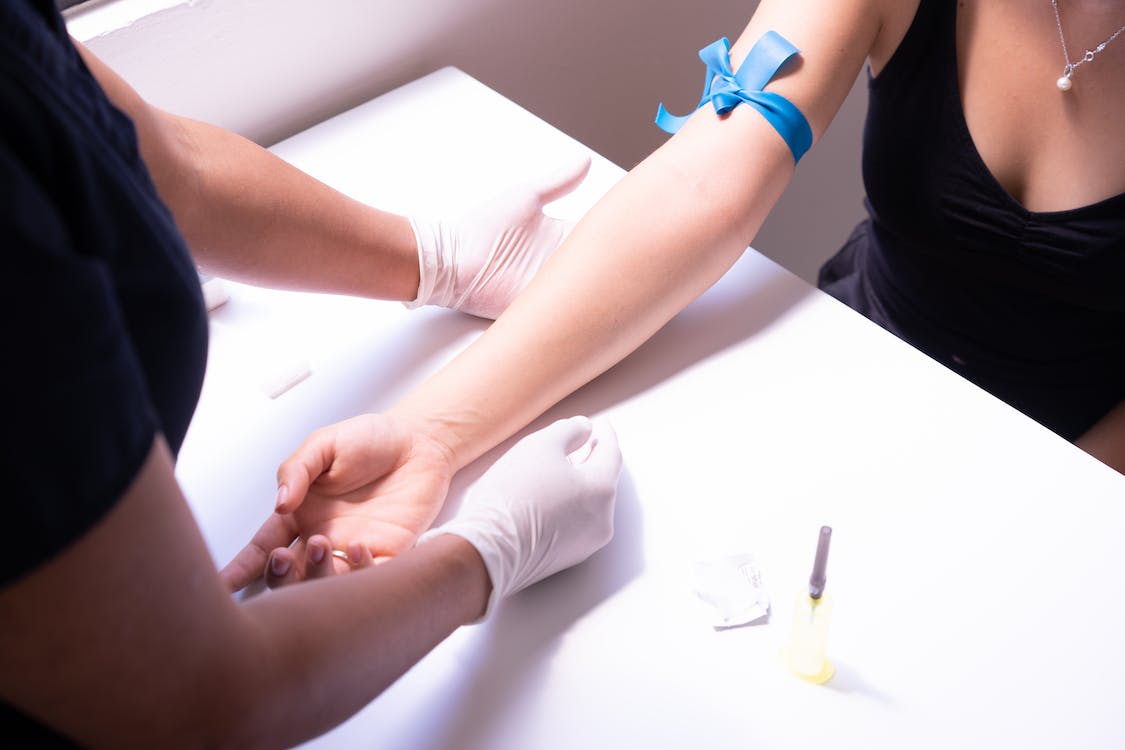
5 Factors That Can Affect Your Blood Test Results

Doctors might ask their patients to change their behavior before the blood test because it might affect the results. For example, physicians might ask you to avoid some medications or fast for some time before getting the test.
Skewed results might be fixed by getting the test again later on. However, if you don’t notice the mistake on time, the patient might get the wrong medication, get an incorrect diagnosis, or undergo unneeded medical issues.
Let’s take a closer look at factors that can affect results for a mobile blood test in VA.
1. Nutrition and Diet
Until a lab sample is taken, a patient’s diet and timing might affect the test’s findings. The patient might be required to fast for up to twelve hours for several lab tests, including those that check cholesterol and triglyceride levels. This is because the nutrients in particular diets might lead to chemical alterations in the body, which could bias test findings.
Diets that restrict particular food groups (like low-carb or vegan diets) could also result in an unforeseen laboratory outcome. Dehydration can also impact the results of tests for creatinine, urea, lipids (cholesterol), and other chemicals. It may also be the reason for potassium and sodium abnormalities in blood test results.
2. Pregnancy
Additionally, a pregnant person’s test results may vary from those of someone who is not. Blood volume, renal function, liver hormone levels, and other metabolic processes may all vary throughout pregnancy. Depending on the stage of pregnancy, fluctuations in hormone levels are evaluated against standard benchmarks. A pregnant woman may get further information from doctors about understanding these findings and how to deal with them.
3. Medications
The results for a mobile blood test in VA may be affected by several over-the-counter and prescription drugs. NSAIDs, vitamins (like biotin), antidepressants, antibiotics, acetaminophen, and steroids are some medications that might distort the findings of your lab tests.
Before testing, you need to discuss your current list of prescription drugs and dietary supplements with your doctor so they can be considered when evaluating your outcomes. Ask your physician for clarification if you’re not sure whether you need to cease taking any drugs before blood tests or not.
4. Substances
Depending on how much has been ingested and the kind of blood test, drugs like alcohol, caffeine, and cigarettes may all impact the outcomes of lab tests. Black tea and other caffeinated drinks are considered diuretics and may slow down digestion. They typically need to be prevented before blood testing because of this.
Alcohol may also increase blood sugar and liver enzymes, which can distort the findings of blood tests that call for fasting. Tobacco use must be avoided before testing since it has been connected to increased cortisol, triglycerides, and blood sugar levels.
5. Exercise
Physical activity is among the most significant elements affecting the outcome of blood tests. This exercise may affect sure of the blood tests, whether you engage in weight training, yoga, HIIT, or a bike ride.
For instance, the body produces more creatine kinase (CK) after vigorous exercise. Blood tests will detect this since CK may be increased for up to a week.
Blood tests for thyroid hormones might also rise or fall due to various activity kinds. For instance, engaging in anaerobic activity might increase the body’s thyroid-stimulating hormone (TSH) production. Anaerobic workouts may also lower FT3 levels concurrently. According to the individual’s degree of fitness, thyroid hormone levels fluctuate over many hours or even a few days.
Phlebotomy On Wheels can help you prepare for your phlebotomy testing services VA and brief you on anything you want to change before you get one. We also accommodate your diet and lifestyle when evaluating the blood test so that you get accurate results.


